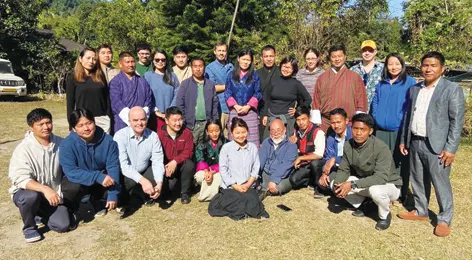ITANAGAR, 10 Jan: The Arunachal Institute for Tribal Studies (AITS) of Rajiv Gandhi University, in collaboration with the Centre for Cultural-Linguistic Diversity (Eastern Himalaya) – CCLD-EH – is conducting its 4th international workshop, themed ‘Training and resources for indigenous community linguists (TRICL)’, from 9 to 13 January at Napit village in East Siang district.
TRICL is a unique collaboration between the AITS, Australia-based NGO CCLD-EH, and the indigenous community members from across the Northeast to empower indigenous researchers to document their own languages and cultures in the service of their communities and of humanity at large.
The five-day training and outreach programme was inaugurated by AITS Director Prof Jumyir Basar. She spoke on “the importance and urgency of indigenous languages and the important role of community linguists for language maintenance and sustainability.”
The training and outreach programme is focusing on building capacity among indigenous community members, in order to sustain the minority languages of Northeast India.
The TRICL programme is coordinated on an annual basis by Dr Yankee Modi and Dr Mark W Post from the University of Sydney, Australia, and Assistant Professor Zilpha A Modi from Rajiv Gandhi University.
Participants representing 17 ethno-linguistic groups from Bhutan, Manipur and different parts of Arunachal Pradesh are attending the training and outreach programme and learning advanced skills in language documentation, video recording, transcription, translation, video subtitling, and dictionary compilation.
Invited resource persons include Dr Kellen Parker Van Dam from the University of Zürich, Nora Muheim from the University of Helsinki, Rolf Hotz from the University of Sydney, and Tashi Tsewang of the Bhutan Oral Literature Project.
Prof Stephen Morey of LaTrobe University also participated in the workshop and donated his corpus of Tai Khamyang, Singpho and Tangsa data to the AITS, which will be archived and made available to local researchers.



